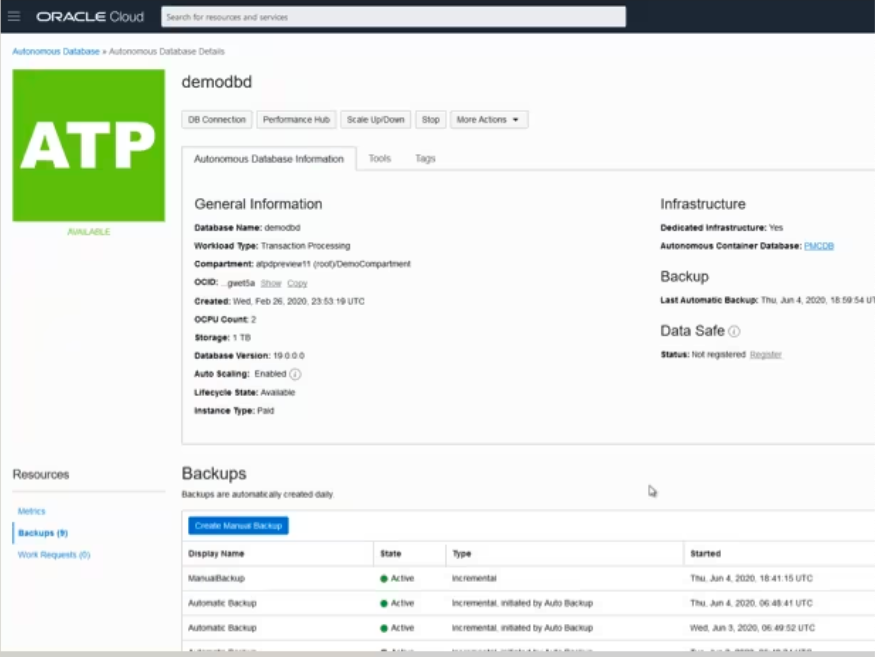Selecting the Right Database Provider for Your Service Requirements
Selecting the Right Database Provider for Your Service Requirements
Blog Article
Key Functions to Look for When Choosing a Data Source Service Provider
Selecting a database supplier is a crucial choice that can dramatically affect your organization's operations and information administration approach. Amongst the necessary features to think about are scalability alternatives, which make sure that your system can adapt to expanding demands. Protection procedures, performance metrics, and client support likewise play critical duties in this examination process. As you weigh these factors, it comes to be evident that the choice is not merely regarding capability but likewise concerning aligning with your long-lasting vision. What various other considerations might affect this vital choice?
Scalability Options
When picking a database supplier, comprehending scalability alternatives is essential to ensuring that the chosen solution can accommodate future growth. Scalability refers to the capacity of a data source system to broaden its ability and performance in response to boosted need. There are two primary kinds of scalability: vertical and straight.
Upright scalability, or "scaling up," entails improving a single server's sources, such as CPU, RAM, or storage space. This technique can be cost-efficient and straightforward for smaller applications but may get to a limit where even more upgrades are not practical or too costly.
Horizontal scalability, or "scaling out," entails adding much more servers to distribute the load. This approach enables greater flexibility and can suit considerable boosts in data volume and individual web traffic (database provider). It is specifically beneficial for cloud-based database solutions that can dynamically assign resources based upon demand

Protection Measures

When assessing safety and security procedures, take into consideration the application of file encryption procedures (database provider). Data-at-rest and data-in-transit security are important to make certain that sensitive information stays safeguarded, even in case of a protection breach. Furthermore, try to find carriers that supply solid authentication mechanisms, such as multi-factor verification (MFA), to additionally enhance access control
Regular safety audits and conformity with industry standards, such as GDPR or HIPAA, are a measure of a copyright's dedication to information security. Additionally, ask about their incident response plan; a robust strategy can lessen the influence of any potential safety incident.
Efficiency Metrics
Examining efficiency metrics is necessary for companies to ensure that their picked database provider satisfies functional needs. Key performance metrics include response time, scalability, and throughput, which jointly determine the effectiveness of data source procedures under varying tons.
Feedback time is crucial, as it shows just how quickly the database can process questions and return outcomes. Organizations should search for metrics that suggest ordinary response times during top and off-peak hours. Throughput, usually measured in transactions per second (TPS), supplies understanding into the database's capability to take care of high volumes of requests without efficiency degradation.
Scalability evaluates the data source's ability to grow with the company's demands. A durable database supplier should show vertical and straight scaling capabilities, enabling seamless modifications as needs fluctuate. Additionally, comprehending latency, especially in dispersed systems, can aid organizations review the responsiveness of the database throughout different geographical places.
Client Assistance
Dependable customer support is a foundation of efficient database administration, giving companies with the support needed to settle concerns and enhance performance. When selecting a data source company, assessing the degree of client support they supply is necessary. A robust support group should consist of several channels of communication, such as phone, email, and live conversation, making sure that individuals can access assistance whenever they require it.
In addition, receptive assistance teams that are available 24/7 substantially improve the reliability of the data source service. Prompt feedback times and efficient resolution of concerns can substantially decrease downtime and boost overall performance. It is likewise useful to think about the availability of specialized support employees, who can supply tailored aid based on a company's particular demands.

Rates Structure
When considering a database company, the pricing structure is a critical factor that can considerably influence an organization's spending plan and overall approach. A clear and flexible prices design is vital for aligning the database costs with business needs - database provider. Organizations should evaluate whether the rates is based upon intake, per customer, or a flat rate, as each model can yield various financial implications gradually
It is necessary to evaluate any type of added prices connected with the copyright's services, such as data storage charges, purchase prices, and support charges. Some carriers might offer tiered prices, enabling scalability as the company expands, while others could impose strict restrictions that can become costly as information needs raise.
In addition, organizations ought to think about the lasting value of the database option. While reduced first prices can be appealing, they may not represent future upgrades, upkeep fees, or integration costs. Carrying out a detailed cost-benefit analysis will certainly aid identify the most appropriate rates framework that stabilizes scalability, efficiency, and support, eventually making sure that the chosen data source supplier straightens with the company's economic and functional objectives.
Final Thought
In conclusion, picking a database service provider demands cautious consideration of different crucial attributes. Examining efficiency metrics enables the resource recognition of effective databases, and accessible consumer support boosts the general customer experience.
Picking a database service provider is a critical choice that can significantly affect your great post to read organization's information and operations monitoring technique.When picking a database provider, comprehending scalability alternatives is critical to making sure that the chosen service can suit future growth. When choosing a database copyright, assessing the degree of customer assistance they provide is vital.When taking into consideration a data source supplier, the prices framework is a crucial factor that can substantially impact an organization's budget plan and general strategy. Conducting an extensive cost-benefit evaluation will certainly assist determine the most appropriate pricing framework that balances assistance, scalability, and performance, inevitably making sure that the picked data source supplier lines up with the organization's functional and financial objectives.
Report this page